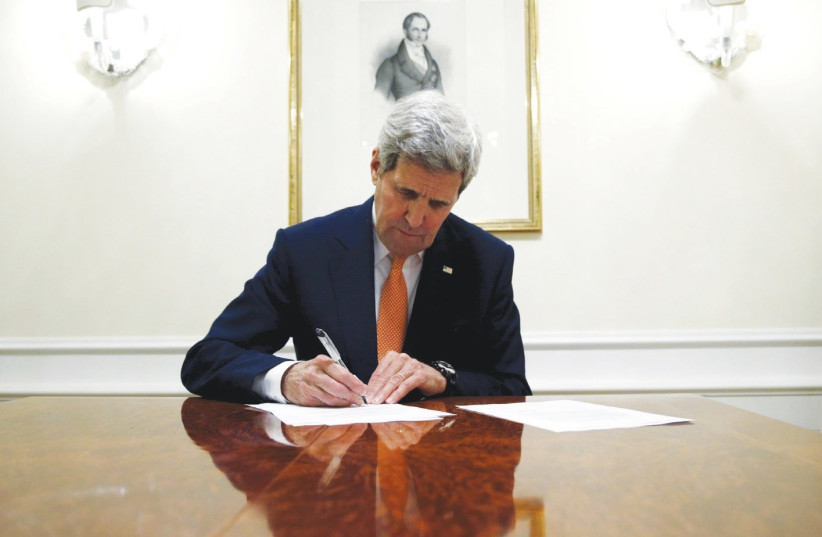The departure of Richard Nephew, the deputy leader of the US delegation to the negotiations with Iran to return to the 2015 nuclear deal, over differences in approach with the top American envoy for Iran, Robert Malley, indicates that Washington is unwilling to increase pressure on Tehran in order to reach an agreement.
In early 2021, the State Department said that “clear-eyed experts with a diversity of views” will comprise the negotiating team for talks to return to the Joint Comprehensive Plan of Action, which restricted Iran’s uranium enrichment while gradually lifting sanctions.
Nephew was a major player in the 2006-2013 sanctions that pressured Iran to the point of bringing it to the negotiating table with world powers, and the author of a book called The Art of Sanctions, about how to implement the tool effectively.
When Nephew’s appointment to the US delegation was announced, the Iranian newspaper Vatan-e-Emrooz doctored a poster from the 1997 film The Devil’s Advocate, with Nephew standing in for an attorney for Satan, played by US President Joe Biden, as opposed to Keanu Reeves and Al Pacino in the original.

Nephew was the senior official out of three who quit the US delegation, The Wall Street Journal reported, because they wanted a firmer position in the negotiations.
The infighting in the American delegation over what warrants getting tough on Iran was taken to the highest levels of the Biden administration, according to the Journal, and Malley, who did not want to take as tough a posture as Nephew, came out on top.
The disagreements included whether the US should better enforce its existing sanctions on Iran, including with China as it imports Iranian oil, and at what point in Iran’s nuclear advancements will a return to the 2015 JCPOA, which was meant to keep Iran a year away from having enough enriched uranium for a nuclear weapon, become irrelevant. In addition, Nephew reportedly thought the US should have pushed for the International Atomic Energy Agency to censure Iran when it blocked the monitoring of its nuclear program.
Matters came to a head in early December. Nephew and the others argued with Malley about whether to walk away from the negotiations after the Iranian delegation refused to continue talks from where they had left off in May. Iran was seeking to start over, while at the same time announcing that it was enriching uranium with IR-6 advanced centrifuges at its underground facility in Fordow.
Since then, Iran agreed to resume the negotiations from where they had left off in May 2021. However, it’s hard to see that as progress, as opposed to taking two steps backward and then one forward.
In the meantime, US Secretary of State Antony Blinken and French Foreign Minister Jean-Yves Le Drian lamented how slowly the negotiations are moving. They and other Western diplomats have said that there are only a few weeks left to negotiate a return to the JCPOA.
But Washington’s continued refusal to set a solid deadline for when talks can no longer be held and the departure of the negotiator setting firmer redlines make the threat of walking away from the table seem emptier than ever before.
By letting the US delegation’s sanctions expert go, the specter of increasing or even just maintaining sanctions on Iran looks like it is fading, as well. Sanctions have already brought Iran to the negotiating table twice; in 2013 when Nephew was involved, and again in 2021, after the Trump administration launched a “maximum pressure” campaign. But the existing sanctions are not even being fully implemented, releasing a lever of pressure the US already has to push Iran into an agreement restricting its nuclear program.
With three members who sought a more robust approach than Malley’s out of the delegation, it’s unlikely that the “diversity of views” the State Department promised remains. Meanwhile, Washington is broadcasting that it is going to give Tehran plenty of time and leeway so that Biden can say he kept his promise to revive the Iran deal.
